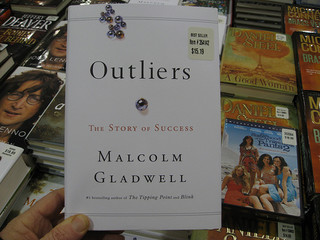 In a Part 5, I discussed the Long Incline of Experience, upon which, I asserted, many would camp. This means they would never reach the point of true mastery of a skill. That’s fine, as few of us do for any given skill. If it were easy we would all be masters of nearly everything.
In a Part 5, I discussed the Long Incline of Experience, upon which, I asserted, many would camp. This means they would never reach the point of true mastery of a skill. That’s fine, as few of us do for any given skill. If it were easy we would all be masters of nearly everything.
Instead, as has been popularized by Malcolm Gladwell in the book Outliers: The Story of Success, it takes quite a bit of work. About 10,000 hours, to be exact. He quotes Daniel Levitin, writing in This Is Your Brain on Music: The Science of a Human Obsession:
The emerging picture from such studies is that ten thousand hours of practice is required to achieve the level of master associated with being a world-class expert — in anything. In study after study, of composers, basketball players, fiction writers, ice skaters, concert pianists, chess players, master criminals, and what have you, this number comes up again and again. Of course, this doesn’t address why some people get more out of their practice sessions than others do. But no one has yet found a case in which true world-class expertise was accomplished in less time. It seems that it takes the brain this long to assimilate all that it needs to know to achieve true mastery. (p. 197)
How long is 10,000 hours? If you use an 8-hour work day, that breaks down to 1,250 work days. At five days in a typical work week, that means 250 weeks, or close to five years of unrelenting, full-time work. So yes, we’re talking about some serious time. Particularly since most skills are not something at which we labor at 8 hours a day.
This is why so many of us choose to “camp” on the Long Incline of Experience. For most skills, we simply have no choice. But that’s just fine. We can’t all be world-class experts, and for most of us to have some lesser level of mastery is sufficient for a long and fruitful life using that skill.
Next Up: The Plain of Mastery
Photo courtesy brewbooks, CC-BY-SA-2.0 license.

